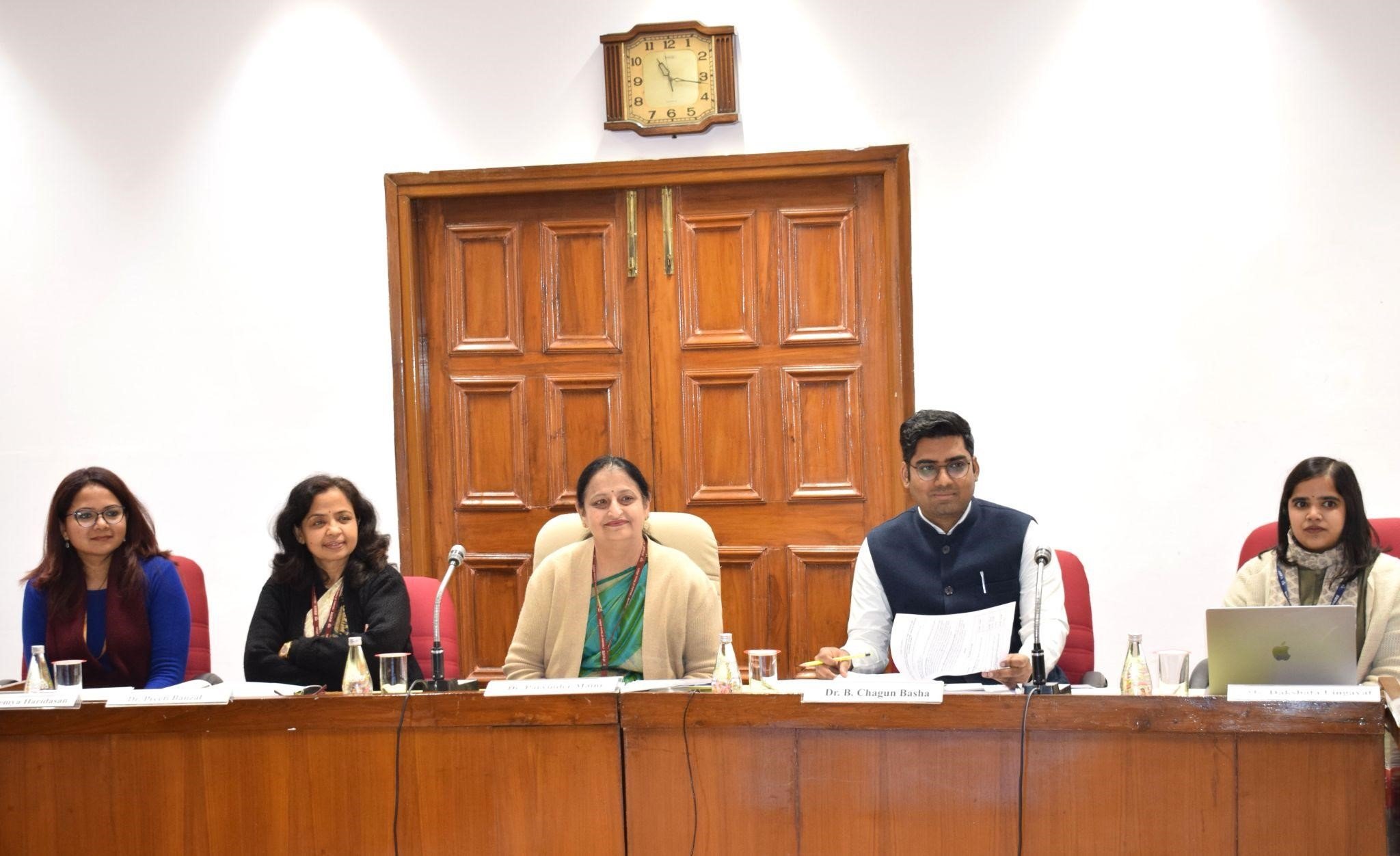PSA Office Hosts Expert Consultation to Refine DEIA Framework for STEMM Fields
Dr. Maini also referred to the 2023 G20 Chief Science Advisers' Roundtable, where DEIA emerged as a critical global focus, inspiring the development of the SARF.

- Country:
- India
The Office of the Principal Scientific Adviser (PSA) to the Government of India convened an expert consultation at Vigyan Bhawan Annexe to deliberate on the draft Self-Assessment and Reporting Framework (SARF) for promoting Diversity, Equity, Inclusion, and Accessibility (DEIA) in Science, Technology, Engineering, Mathematics, and Medicine (STEMM).
Chaired by Dr. Parvinder Maini, Scientific Secretary, Office of PSA, the session aimed to refine the DEIA-STEMM SARF, which seeks to foster inclusivity and evidence-based policymaking in Indian STEMM organisations. The consultation brought together experts from academia, think tanks, civil society, industry, and government to discuss strategies and parameters for achieving DEIA objectives. Key Discussions and Insights:
Significance of DEIA in STEMM
In her opening remarks, Dr. Maini stressed the need for holistic development through inclusivity in STEMM fields, highlighting India’s demographic and linguistic diversity as a catalyst for socio-economic progress. She acknowledged ongoing efforts, such as the National Education Policy, Anusandhan National Research Foundation, Vigyan Jyoti, and Vernacular Innovation Program, which incorporate DEIA principles.
Dr. Maini also referred to the 2023 G20 Chief Science Advisers' Roundtable, where DEIA emerged as a critical global focus, inspiring the development of the SARF. She emphasized that the framework, anchored by disaggregated data collection and periodic assessment, would drive evidence-based reforms and institutional transformation.
Framework Presentation and Expert Feedback
A presentation by the Office of PSA outlined the SARF’s core parameters, including:
- Gender equity and inclusion of historically underserved groups.
- Diversity in perspectives, disciplines, and languages.
- Promotion of ethical, open, and pluralistic sciences.
Experts underscored the importance of nuanced disaggregation of DEIA indicators to capture multiple dimensions effectively. They emphasized the critical role of linguistic diversity in enhancing accessibility, especially in India’s multilingual context.
The interplay between technology and DEIA was also discussed, with experts pointing out how digital platforms can pose new challenges to inclusion. The need to address institutional culture—through sensitization, affirmative spaces, and a robust care ecosystem—was emphasized as critical for fostering an inclusive environment.
Proposed Enhancements to the Framework
Experts suggested incorporating:
- Outcome and impact indicators to measure progress.
- Analytical tools for actionable strategies and cultural transformation.
- Intersectionality and public participation as process indicators.
- Customisation for stakeholder-specific needs and periodic self-assessment.
Capacity Building and Pilot Implementation
The framework will now undergo revisions based on the consultation, followed by its presentation to policymakers. A pilot program with selected institutions is proposed, alongside the development of a capacity-building module in collaboration with the Capacity Building Commission (CBC).
Bolstering DEIA Awareness and Engagement
Dr. Maini concluded the session by calling for amplified awareness of government DEIA initiatives to foster broader participation.
“By integrating evidence-driven approaches and stakeholder feedback, this framework can serve as a cornerstone for transformative DEIA goals in India’s STEMM fields,” she remarked.
This initiative is seen as a landmark step towards institutionalizing DEIA in India’s science and technology ecosystem, driving collective progress and inclusive growth.
- READ MORE ON:
- Principal Scientific Adviser
- Dr. Parvinder Maini










